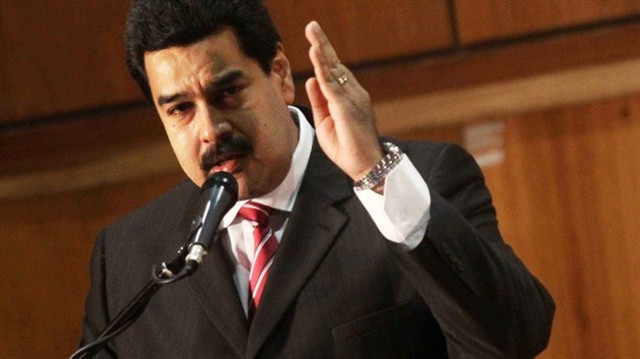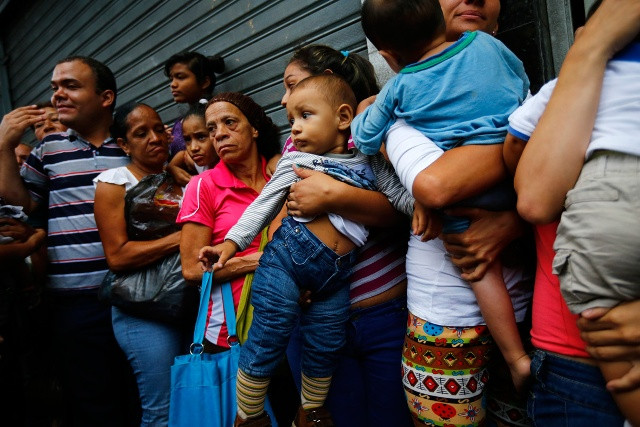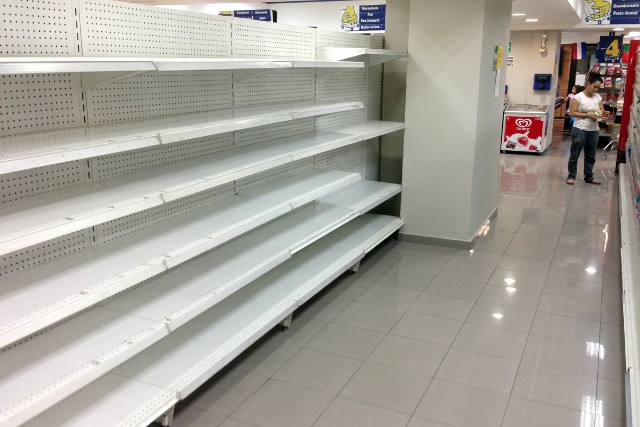Venezuelan president struggles to cope with crisis
(Baonghean) - Never before have Venezuelan President Nicolas Maduro been faced with such a series of difficulties at the same time and on top of each other. The energy crisis and economic crisis are threatening to turn into a social crisis, along with a serious political crisis. A series of temporary measures have been put forward, but there have been no signs of improvement for Venezuela in recent days.
Difficulties piled up
Previously, it was hard to imagine that Venezuela - the country with the world's largest oil reserves - would face a serious economic and energy crisis. But this has become a reality since oil prices have plummeted for more than a year. Oil accounts for 96% of Venezuela's total export turnover, so the country's economy has been in real trouble when oil prices have hit rock bottom many times.
 |
| Venezuelan President Nicolas Maduro is facing numerous difficulties. Photo: iran-daily.com |
Meanwhile, the El Nino phenomenon that has caused severe drought since 2010 has also led to energy shortages. Economic difficulties, scarcity of food and necessities have made people's lives extremely difficult. The future is even more uncertain as Venezuela currently has the highest inflation rate in the world, which could increase to 500% this year. At the same time, experts predict that the Venezuelan economy will continue to decline by nearly 6% last year and grow by 8% in 2016.
This sad reality has led to Venezuelan voters' disappointment with the ruling party. For the first time in 17 years, the opposition Democratic Unity Alliance (MUD) defeated the ruling United Socialist Party (PSUV) of the late President Hugo Chavez in the National Assembly elections last December. Not stopping there, the opposition has used the current difficulties to accuse President Nicolas Maduro's government of being too weak and making serious mistakes in economic and energy management policies.
 |
| Venezuelans line up to buy necessities at a supermarket in Caracas. Photo: Reuters. |
In the latest development, on May 2, the opposition in Venezuela announced that it had sent the National Electoral Council (CNE) of Venezuela a list of more than 2.5 million signatures, paving the way for the necessary procedures to remove President Nicolas Maduro. If the National Electoral Commission approves the authenticity of these signatures in the coming days, the second phase will begin with the collection of an additional 20%, equivalent to 4 million signatures, before a final vote is held.
Narrow door slot
Faced with a series of difficulties and challenges, President Nicolas Maduro has quickly introduced many measures to overcome them. Most recently, from 2:30 p.m. on May 1, Venezuela's time zone was officially moved forward 30 minutes to GMT-4 to save electricity. Or employees of state agencies will only have to work 2 days a week and there is also a plan for rotating power outages. However, these measures are considered only temporary solutions. Analysts say that these policies are too slow compared to reality and are unlikely to solve the problems of a serious energy and economic crisis in Venezuela today.
To salvage and appease public opinion, President Maduro decided to increase the minimum wage for workers by 30% to 15,000 bolivars/month (equivalent to about 1,500 USD/month). This is the 12th increase in the minimum wage since Mr. Maduro took office in April 2013. However, this move by the President was also criticized by the opposition, who said that this was just a sign of weakness on the part of the government when it could not prevent escalating inflation and economic recession.
 |
| Empty shelves at a supermarket in Caracas. Photo: AFP |
Under pressure from the opposition, President Maduro, in a statement issued on May 1, International Workers' Day, called on his supporters to launch a general strike and "revolt" if the opposition succeeded in removing him from office. In addition, he also accused the opposition, backed by the US and others, of launching an "economic war" against his government.
According to observers, President Nicolas Maduro’s current situation, although very difficult, is not a dead end. Although the opposition expressed confidence that they could collect enough signatures within the prescribed time, the process of removing the President is not an easy one.
In a recent development, the Venezuelan Supreme Court (TSJ) has decided to annul the draft amendment to the Constitution with the aim of holding a referendum to shorten the term of President Nicolas Maduro from 6 to 4 years, which was previously approved by the opposition-led National Assembly. Not only that, Venezuelan Defense Minister Vladimir Padrino Lopez in a statement affirmed that the military will never oppress and oppose the people, nor carry out a coup and harm the national institutions; at the same time, it will protect the Constitution and the independence of the country. Meanwhile, on the people's side, although disappointed, not all have turned their backs on the achievements that the late President Chavez built.
However, it is certain that the current moves of the opposition are significantly affecting the President's plan to solve the country's economic, energy and food crisis. Moreover, since the opposition has controlled the National Assembly, the government's policies, if they want to be implemented, will have to go through a "narrow door". This door will be even more difficult to get through when the power struggle between the government and the National Assembly continues to be as tense as it is now. In such a context, no one but the Venezuelan people will have to bear all the consequences.
Phuong Hoa
| RELATED NEWS |
|---|
| RELATED NEWS |
|---|



